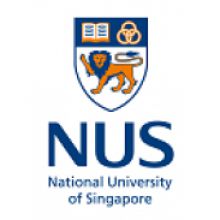A university’s use of big data on skills shortages to shape degree programmes has prompted a global debate on the extent to which curricula should be aligned with industry needs.
The National University of Singapore (NUS) is using data on employer demand and graduate supply from government agencies, employers and industry to construct courses at its new School of Continuing and Lifelong Education.
NUS president Tan Chorh Chuan told Times Higher Education that the data allow the university to “more systematically” identify “supply-skills demand mismatches in Singapore” and how the institution can “help fill some of these gaps”. He said that the S$12 million (£7 million) school will run cross-disciplinary degrees for adults and graduates and that the data will identify “technical skills linked to specific areas of work” that should be taught.
He added that the data will likely help to shape the university’s undergraduate programmes in the future.
“The nature of work is changing, each graduate is likely to do several jobs in the lifetime of their careers, and the world is becoming more volatile,” he said.
“Under these conditions, the zest for and habit of lifelong learning are crucial for individuals in order to stay relevant and in demand for jobs that do not yet exist.”
Professor Tan said that the university, which is Asia’s top institution in the THE World University Rankings 2016-2017, has also established an S$8 million Institute for the Application of Learning Science. It is set to develop two modules aimed at teaching students learning approaches that are shown to be effective for continual learning and how to make decisions, especially in complex situations or where there is incomplete information.
Christopher Deneen, assistant professor in curriculum, teaching and learning at the National Institute of Education in Singapore, said that adapting education to plug skills gaps was particularly vital in Asia, but “any nation that sees a more sophisticated citizenry as essential to the future should be concerned with skills gaps”.
The NUS’ moves come as governments across the world put increasing pressure on universities to prove their societal relevance and produce more employable graduates.
The UK government’s new teaching excellence framework, which will allow universities that score well to raise tuition fees, will rank institutions using graduate employment data as well as other measures.
Meanwhile, China’s expansion of higher education has resulted in the launch of several universities specialising in science and technology that are aimed at bolstering the workforce for the country’s growing high-tech manufacturing and engineering sectors.
Vicki Thomson, chief executive of Australia’s Group of Eight, a consortium of eight leading universities in the country, said that it was important “not to fall into the trap of thinking that merely because a person completes a degree in one subject matter area, that is the area [in which] they will be employed”.
She said that in Australia’s 2015 survey of graduate destinations, “while the overall graduate employment rate increased slightly, the proportion of graduates working in fields directly relevant to their field of study fell”.
“Universities are doing the community – and especially our graduates – a great disservice if we narrow our teaching focus only to delivering graduates with narrow skills and abilities who are capable of entering a single career,” she said.
Anna Vignoles, professor of education at the University of Cambridge, who has argued that graduate earnings data could be used to help shape what is taught at university, said that curricula should be “better adapted for the current and future needs that firms have”.
But she said that there was a risk that some arts and humanities subjects “may suffer if universities increase provision of more marketable subjects or indeed if students increasingly choose them”.
Wolfgang Herrmann, president of the Technical University of Munich, said that his institution took the opposite course and reinstated social sciences 10 years ago in order to produce more employable graduates and to ensure that programmes match “societal needs”, arguing that the subjects that used to be “considered the soft disciplines” have “become important”.
He added that teaching undergraduates “generalist” degrees, such as general engineering, was a more effective approach than making students specialise within a discipline.
“What [employers] expect from a smart alumnus is to understand a general phenomenon, have the right theory and apply this theory to related cases,” he said.
Harry Lewis, professor of computer science at Harvard University and author of the 2011 book What Is College For?: The Public Purpose of Higher Education, said that university strategies aimed at teaching students transferable skills and how to solve problems should be welcomed, but he warned that technical skills have a “half-life”.
“A student can be trained in the latest technologies, but if they don’t have a deeper reservoir of basic knowledge they are not going to be able to adapt quickly and flexibly as the technology changes,” he said.
“Soulless skills-oriented strictly vocational engineering training is really not what the world needs, even if it’s what industry claims it’s what they want. Universities are intended to be permanent institutions that have a long-term responsibility, much longer term than any corporation has.”
Institutions should not become ‘me too’ universities
The president of the National University of Singapore said that it is “very important” for institutions to have “distinctive” aims so as not to turn into a “me too university” that tries to copy every other model.
Tan Chorh Chuan said that the NUS is differentiated from its competitors as it is a national university, with a global outlook but attuned to local needs in Asia.
He said that establishing a unique model gives the university “clarity about what matters most to you as an institution” and helps it to recruit and retain academics, but he clarified that the NUS is “not planning to be different just to be different”.
“We want to be different by doing things better in some way,” he said.
“Differentiation also forces you to ask two important questions: What is our relevance? And what is our value proposition?”
Professor Tan added: “We could just be a ‘me too’ university – let’s do a bit of this, let’s do a bit of that”, but it would then be difficult to analyse its performance because it was trying to do so much.
He said that a key challenge for the university was “trying to peer into the future and think about where are we now and where should we be in five to 10 years’ time”.
Register to continue
Why register?
- Registration is free and only takes a moment
- Once registered, you can read 3 articles a month
- Sign up for our newsletter
Subscribe
Or subscribe for unlimited access to:
- Unlimited access to news, views, insights & reviews
- Digital editions
- Digital access to THE’s university and college rankings analysis
Already registered or a current subscriber?


